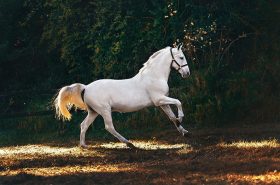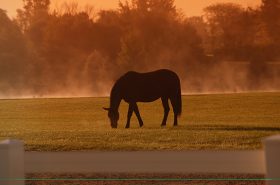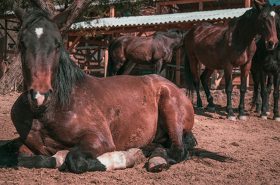Does your horse get frequent hoof cracks? Or maybe deal with bouts of thrush every year? Believe it or not, this could have more to do with nutrition than your horse’s environment (though the environment certainly can play a part).
Healthy hooves begin with good nutrition as well as consistent, quality hoof care. If you keep up with the latter and your horse still experiences hoof health issues on a frequent basis, there’s a good chance it’s due to a dietary deficiency or imbalance of some kind.
The following nutrients all play an important role in the health of your horse’s hooves…
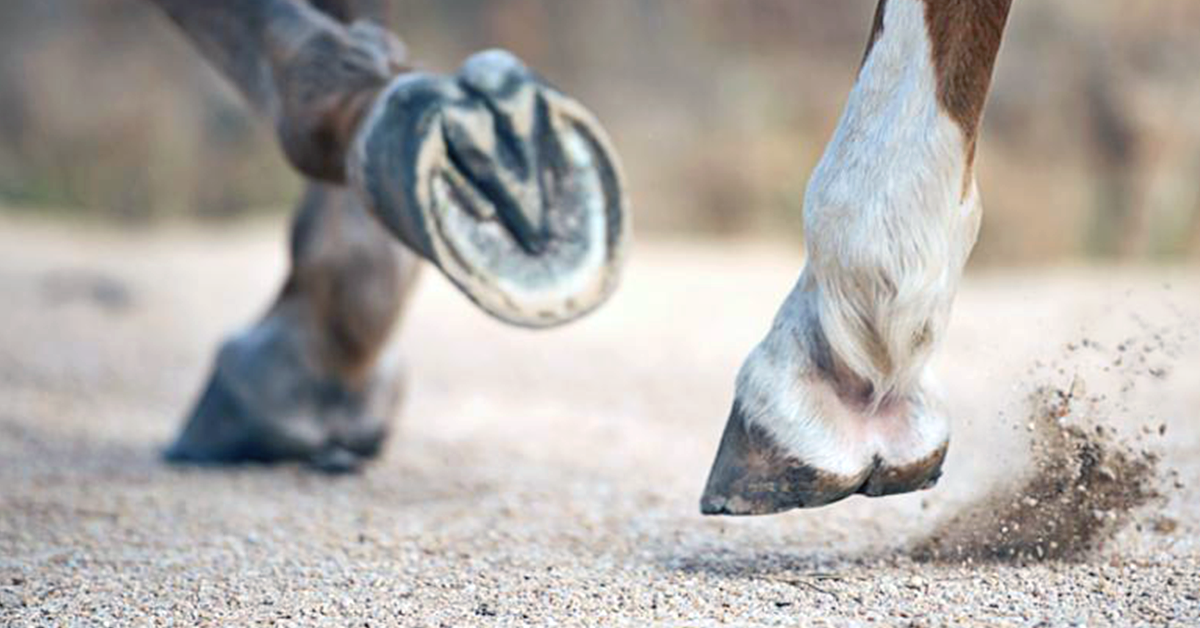
Zinc
Hoof wall epidermal cells and blood vessels require zinc for cell reproduction, maintenance, and repair and zinc is one of the trace minerals that is often insufficient in horses’ diets. When supplementing, keep in mind that the body better absorbs chelated zinc than inorganic sources.
Copper
Copper is another trace mineral that plays an important role in connective tissue health and is also commonly deficient in horses’ diets. However, copper and zinc levels must be carefully balanced to ensure proper absorption. A 3:1 ratio of zinc to copper is recommended. Chelated copper is also preferable to inorganic sources.
Biotin
Vitamin B-7, aka biotin, is considered to be one of the most important vitamins for hoof health; as such, you will see it in most hoof supplements on the market. Biotin contains sulfur, an element that contributes to the strength of the bonds between collagen strands in connective tissue, including the hoof wall.
Protein
The horn of the hoof is primarily composed of an insoluble protein called keratin. Because keratin is made up of amino acids, the horse needs to consume these in the diet to support hoof structure and function. The best way to ensure that your horse is getting all 10 amino acids required isn’t to feed more protein, but instead, provide a variety of protein sources in the diet. Examples include dried split peas, alfalfa, flaxseed meal, hemp seeds, chia seeds, and soybean meal.
Omega Fatty Acids
Omega fatty acids are present in fresh grass but horses on poor pasture or eating a mostly or all hay diet can benefit fro omega-3 supplementation, such as ground flaxseed or chia seeds. These ingredients help to bind and strengthen the hoof wall and prevent cracking.
By paying attention to the above nutrients and ensuring they are a part of your horse’s diet, you can help to ensure that your horse’s hooves stay beautiful and healthy.
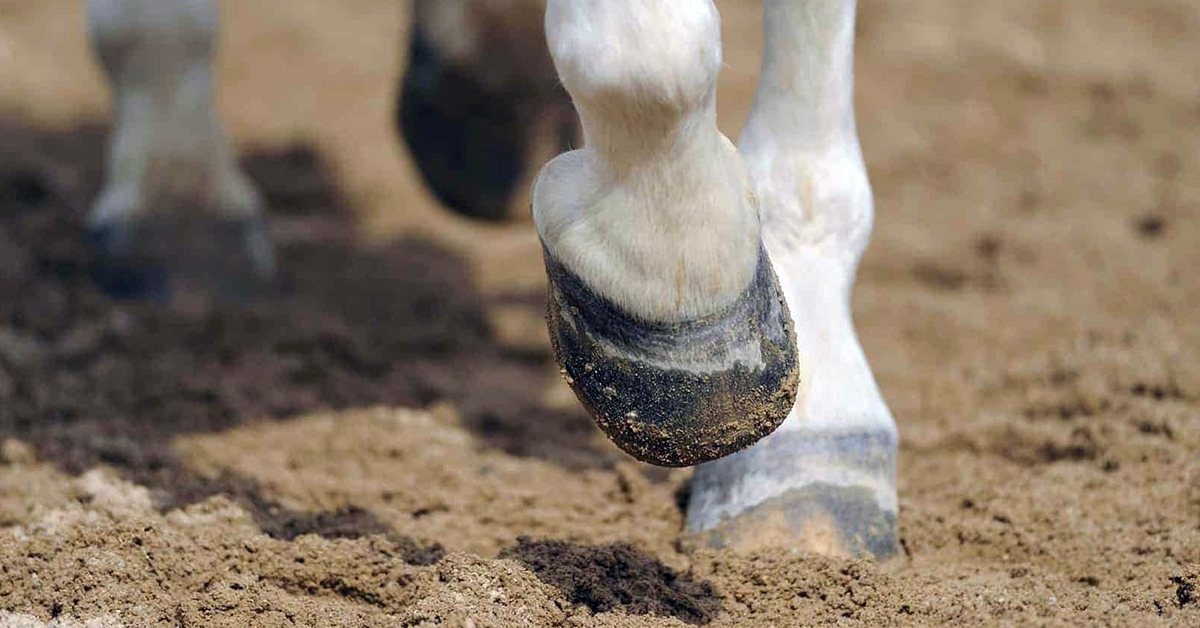
Love this blog post? We think you will like Five Ways to Improve Your Horse’s Hoof Health by Casie Bazay.

